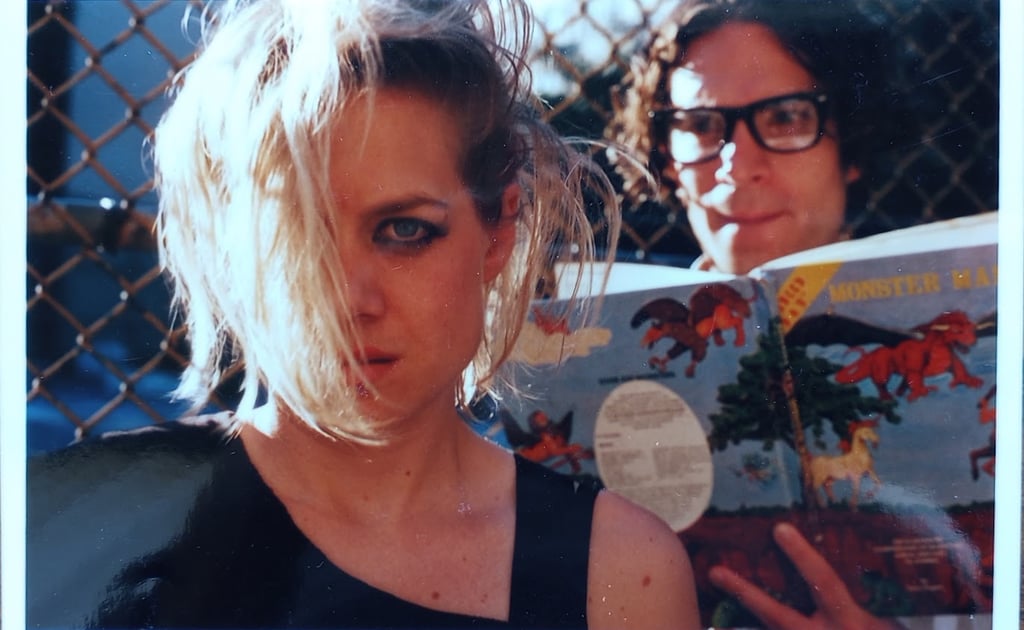Ungifted & Untalented
A play that almost didn't exist turns 20.


Twenty years ago, Dramatists Play Service published The Gifted Program, a play inspired by my experiences growing up in Wisconsin as a nerdy Dungeons & Dragons-obsessed kid in the 1980s.
It was my first published play, a milestone I never thought I'd accomplish.
And it almost didn't happen.
In fact, at the time, it seemed like the entire New York critical community had conspired to make sure the play never lived to see another day on a stage anywhere.
Every play takes so much work to make it to production. But if you ever catch a show in a tiny black box theatre somewhere off the beaten path--know that it takes the heroic efforts of a minor (usually unpaid) army to get it to the point where an audience can see it.
Gifted was no different. My extraordinary cast dedicated themselves to hours of rehearsals, sharpening and improving the final product, all for a salary of subway tokens. My good friend Ryan donated his time to be a combination assistant director, lightboard operator, and sound guy. Mike Shapiro, the director, worked tirelessly to deliver a top-notch show with little time, resources, and no pay. My friends who made up the production company OVO contributed in countless ways to support Gifted's journey to the stage. I still consider myself in their debt.
Nearly our entire budget went to the theatre rental: a dusty, 75-seat venue with uncomfortable folding chairs, few lights, and an often-failing elevator entrance. All in a location nowhere near Broadway.
To see it up on its feet felt like a minor miracle. Ticket sales were strong. Audiences were responding way better than I'd hoped. Then, the reviews came in.
We received a string of some of the most hateful responses I'd ever seen. The one from Time Out New York was particularly vitriolic. The first time I read it, it felt like a simultaneous punch to my gut, nuts, and soul. I put the magazine down. I held a brief conference with myself.
"Surely, you're being dramatic. You're overreacting because you're too close to this, Ruben. Put it down for a second. Take a moment. Read it again. It can't be that bad." I did. I took a breath. Then reread it.
It was worse the second time.
It savaged my writing and my take on high school. But the most unforgivable thing in my mind was it referred to the cast as "Ungifted and untalented." Not only was this a cheap shot, but it simply wasn't true. Every night, without fail, the cast filled the theatre with laughter. People were having a great time. How could these critics be so blind to what was happening right in front of them?
The day after the reviews came in, morale was at a low. Ari, an OVO member who was also killing it in the role as one of the meanest girls of Washington High, arrived with T-shirts emblazoned with Ungifted and Untalented. It helped. The cast brushed off the critics and returned even more determined to squeeze out every laugh and knock every emotional note out of the park.
Then, we caught a break.
A reviewer from the New Yorker encountered a last-minute cancelation for a preview of a much bigger show. Looking through a pile of press releases, they came upon ours and decided it sounded fun. Mike and I were so nervous about the unexpected arrival of our new guest we camped in the lobby, unable to stomach even the back row. For the next ninety minutes of our lives, we white-knuckled it. Every laugh that emerged from the theatre was a triumph, and every gag that didn't land was like a stab in the heart.
The review was a capsule in the back of the magazine: a mere paragraph. But it was glowing. It gave the cast the kudos they deserved and a juicy pull quote to boot. It changed everything.
The remainder of the play's run sold out. Two publishers reached out with offers. Other doors opened, including a gig that would jump-start my career as a segment writer for the NBA. Unfortunately, we didn't have the resources or cast availability to extend the show. But the play ended on a high note.
I don't think The Gifted Program could even be considered a cult hit. It's barely an obscurity. At the same time, it's produced regionally and fairly regularly all over the country. Because the play has more f-bombs than the movie Scarface, I eventually created a high school-friendly version that allowed it to reach a wider younger audience. Early this year, Amity High School in Connecticut put it up and, by all accounts, had a great time with it.
I'm always astonished that kids respond so strongly to a play set in that distant era of neon clothes and synthpop. It's partly because the 80s have captured a permanent spot in our culture's heart. But there's something more. Following one of the performances of its initial run, a man in his 70s approached me.
"That play was just like my high school experience. I guess some things never change."
After a long time away from New York City, I returned to the Drama Bookshop. There was still a single copy on the shelves two decades later. It made me proud.
Not bad for a horribly-reviewed play.
If D&D and indie theatre are your idea of a match made in heaven, check out The Story Told Podcast, where I yap about the early days of tabletop gaming and the origins of The Gifted Program.
The acting edition of both the f-bomb-heavy original or the milder high school version of The Gifted Program can be purchased here.